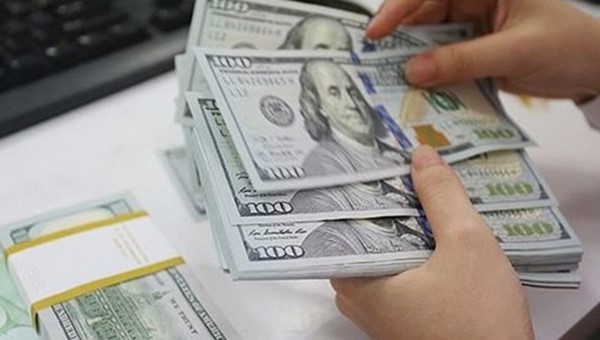Vietnam’s FX market remains stable in volatility
The domestic foreign exchange market remains stable amid global volatility.

On July 4th, the SBV officially raised the selling price of USD by VND 150, from VND 23,250 to VND 23,400/USD, and changed the method from selling 3-month term to spot delivery.
>> Pressure to increase the exchange rate, will the State Bank take action?
The FED has raised rates three times in 1H2022, with the biggest rate hike in 28 years (75bps) made on June 15 and signalling a desire to tighten monetary policy further. The strength of the greenback has taken a toll on major and emerging market currencies, which have been weighed down significantly.
Such moves have affected the balance of dollar supply and demand in the local FX market as well as its sentiment, putting pressure on the stabilisation of exchange rates and the domestic FX market.
On July 4th, the SBV officially raised the selling price of USD by VND 150, from VND 23,250 to VND 23,400/USD, and changed the method from selling 3-month term to spot delivery. This is the third time in 2022 that the SBV made changes to foreign currency transactions and the second time to raise the selling rate. This move took place in the context of the Fed's drastic rate hikes (a total of 1.5 percentage points since the beginning of this year) and said it would continue to raise rates until inflation is controlled.
Before the Fed's decisions, the DXY index had increased by 9.9% compared to the end of 2021 (as of July 1st, 2022), making all currencies of EM countries (in the sample tracked by BVSC) depreciate against the USD. The USD/VND exchange rate also increased by 1.98% YTD, but it was the lowest devaluation compared to other EMs. Although the VND is under pressure of devaluation due to the Fed’s changes in monetary policy, a stable macro environment, high foreign exchange reserves, and a continuous trade surplus may help the VND be stable when compared to the currencies of other emerging and frontier economies.
>> High exchange rate and worries of import-export enterprises
Mr. Ngo Dang Khoa, Country Head of Markets and Securities Services, HSBC Vietnam, said SBV would continue to manage the currency exchange rate with flexibility to absorb external shocks while staying ready to make necessary adjustments to limit the rate volatility, contributing to stabilizing the FX market as well as the macro economy and controlling inflation.
Given the volatility and pressures of the market, SBV has been building up foreign reserves, which enables it to continue to sell foreign currency to stabilise the market. "SBV is set to increase the frequency of currency sales to increase market supply, allowing financial institutes to ensure demand for foreign currency is met on time, especially for businesses who need to import essential items for manufacturing and export, which consequently helps stabilise the market and supports economic recovery," said Mr. Ngo Dang Khoa.








